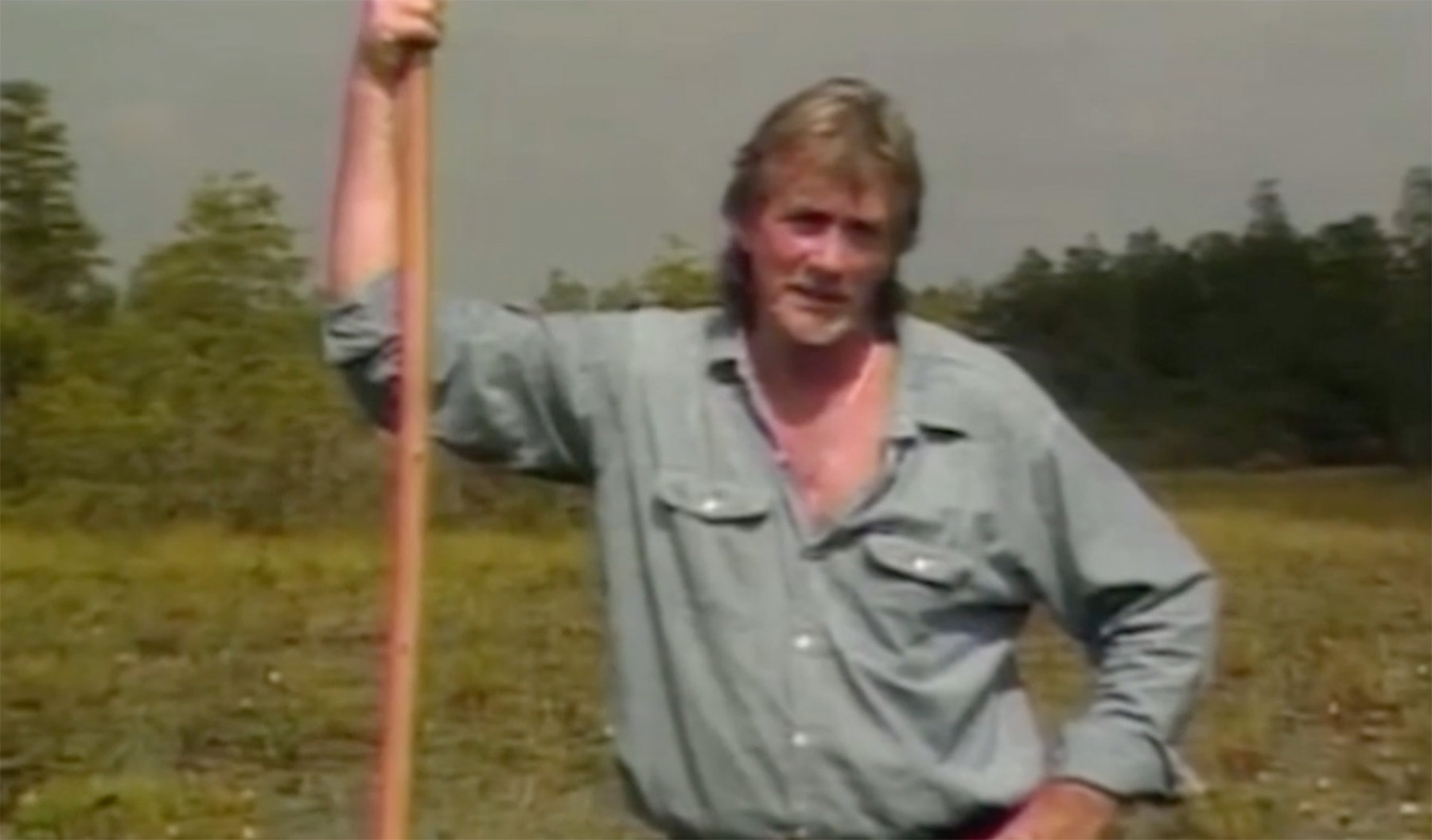Fair warning: Swampwise is one of those songs that may stick in your head, playing over and over again when you least expect it. If you watch and listen to the following one-minute video, you’ll see what I mean. And apart from the music, I challenge you to to see the 10-second portion from 0:14 to 0:24 and not want to watch it again.
The clip above is from Okefenokee, an episode of the great Georgia Outdoors series produced by Georgia Public Broadcasting. The song and video here were part of an earlier 1991 GPB production. The host, Okefenokee Joe, is AKA the singer Dick Flood.
During our own tour of the Okefenokee, seen in Jim’s photo essay here, Jim also hit the record button on his Android phone, as soon as we realized that the travelogue by our guide (not Okefenokee Joe, but an equally colorful guy) was worth having forever. The Atlantic’s multi-talented Katherine Wells edited the audio into two short clips below.
A second is the interchangeable use of “y’all” and “you guys” and “guys”. I’ll tell you what I think of that after you listen. (The volume is lower than on Swampwise, so you may need to turn it up on your machine.)
The “you guys” thing is a modern moniker, snaking around the country in unpredictable ways. I wrote about the use of “you guys” in Michigan here and in South Carolina here.
From the treasure trove of the Harvard Dialect Survey, we learned that the favored term around the country as the way of addressing a group of two or more people is “you guys,” with 43% of people, compared with a mere 11% in Georgia. By contrast, 71% of Georgians choose “y’all,” as compared with 14% nationwide.
What was interesting to me about our guide’s use, is that he, with his strong Georgia accent, alternated equally between “y’all” and “guys,” with a few “you guys” thrown in for good measure. (The Harvard Dialect Survey did not offer “guys” as an option, only “you guys.”) Between the two clips, I heard 7 instances of “y’all” and 7 of “guys” or “you guys.” That’s 14 times in just under 3 minutes! I wondered if he was split-brained on this, saying “y’all” from his heart and “you guys” and “guys” in deference to his (small) national boatload audience.
In the second clip, you’ll hear a lot more examples of the “guys” v. “ya’ll” as well as the wise > wahse pronunciation. Listen for: right, side, like, pile, pinestraw, like, nine, right, guys, stripe, sometimes, miles, I, five, side to side, ride, nine.
Heads-up, too, for some of the good ol’ boy vocabulary the guide used. My favorite is the collection of references to the alligators: mama alligator or mama ‘gator; baby alligator, baby ‘gator, and the best of all, at the 35-second mark , liddel ol’ bitty baby. He also says liddel ol’ tooth on the end of their nose.
The Southernisms in these tapes are fun to listen for. To name a few: the pronunciation of egg, as in “chicken egg” and “snake egg” sounds more like “aig.” The collapsing of the distinction of the “i” v. “e” sounds of “pin” and “pen” into just “pin,” as in “any.” The use of “set” instead of “sit” or “sat.” “Him” or “her” instead of “he” or “she.” A drawl of the “e” in “shell” into a dipthong, which sounds like “shy’ell.” The loss of the final “g,” in “-ing” as in Water bein’ so low, comin’ up on the left, Spanish moss hangin’ off them. This dropping of the final “g” is a favorite of politicians; listen to any one of them — even the Yanks and Westerners — the next time they’re speaking in the South.
And finally, I think I noticed a difference between the speaking styles between the first and second clips. In the second clip, after he warmed up to us, our guide seemed to become a little more casual and conversational. He went off script more often, and he seemed to slip into more of his Southernisms, which I interpreted as his more natural way of talking.
I hope this has helped you become a little more Swampwise.






